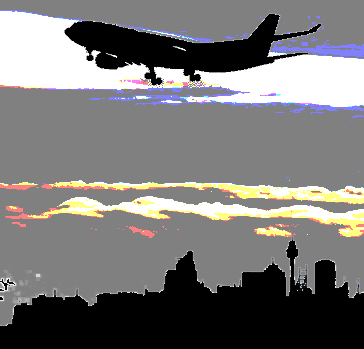Avgas switch could cut emissions
 Skies around the world are criss-crossed with contrails - fluffy white streaks left by airplanes.
Skies around the world are criss-crossed with contrails - fluffy white streaks left by airplanes.
Contrails are produced by exhaust from aircraft engines, which is a significant contributor to global warming.
However, researchers say a new generation of jet fuels could help clean up the skies.
“More than half of the climate impacts from aviation come from contrails,” says study co-author Christiane Voigt, an atmospheric physicist at the German Aerospace Center near Munich.
Aircraft contrails contribute to climate warming by trapping infrared radiation from the Earth’s surface in the atmosphere.
Climate warming by contrails is thought to be larger than the contribution from aircraft carbon dioxide and nitric oxide emissions. Incomplete combustion of fuel compounds in aircraft engines creates large amounts of soot particles onto which water vapour can condense and eventually freeze into ice particles, forming contrails. This is especially the case for conventional fuels that contain aromatic compounds, known precursors of soot.
Dr Voigt and colleagues measured soot and ice crystals in the contrails behind an Airbus A320 aircraft using one of five different fuel blends, which ranged from conventional aircraft fuel to sustainable fuels that are low in aromatic compounds.
The authors found that contrails produced when the aircraft was burning sustainable fuel blends contained less soot and fewer, but larger, ice crystals, and that these contrails warmed the atmosphere less.
A second, independent study by Dr Bernd Kärcher and colleagues has used mathematical simulations to show that a previously discovered climate cooling effect by which aircraft soot particles interact with existing aircraft-induced clouds to reflect sunlight back into space may be smaller than thought.
Taken together, the results from both studies suggest that more widespread use of fuels low in aromatic compounds could help reduce the climate impact of aviation by reducing its overall warming effects.







 Print
Print